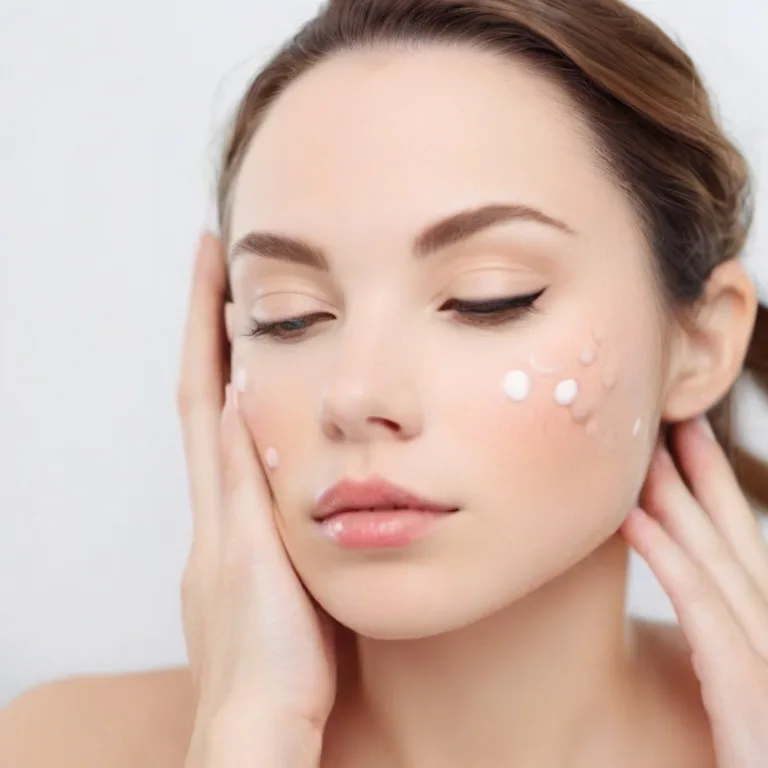Explore the intricate relationship between hormones and your skin. From puberty and pregnancy to menopause, discover the science behind hormonal skin changes and unlock effective skincare tips tailored to each life stage. Embrace radiant skin at every age with our holistic approach, addressing imbalances through expert advice, personalized routines, and nourishing lifestyle choices. Navigate the journey of hormonal fluctuations confidently, unveiling the secret to maintaining healthy, vibrant skin throughout life.
Table of Contents
Introduction:
Hormonal fluctuations can have a profound impact on the skin, leading to a myriad of changes that often leave individuals grappling with skincare challenges. Understanding how hormones influence the skin and adopting effective strategies to address these changes is crucial for maintaining healthy and radiant skin. In this article, we will delve into the science behind hormonal skin changes and explore practical tips and skincare routines to manage and embrace the skin’s natural evolution.
you can also read about 12 Top Essential Summer Skincare Tips click here
1. The Science of Hormonal Skin Changes:
Hormones and Skin Health:
Hormones play a crucial role in regulating various functions in the body, including skin health. Estrogen, progesterone, and androgens are hormones that can impact the skin’s appearance and condition.
Puberty, Pregnancy, Menopause:
Different life stages, such as puberty, pregnancy, and menopause, involve significant hormonal fluctuations. During puberty, an increase in androgens can lead to acne. Pregnancy often brings changes in pigmentation and skin sensitivity. Menopause involves a decline in estrogen, affecting collagen and elasticity.
Connection with Common Skin Issues:
Hormonal fluctuations can contribute to common skin issues like acne, dryness, and oiliness. Understanding this connection is vital for tailoring an effective skincare routine.
2. Puberty and Adolescence:
Androgens and Acne:
The surge in androgens during puberty stimulates sebum production, leading to acne. Establishing a proper skincare routine, including gentle cleansers and non-comedogenic products, is essential for teenagers.
Skincare for Teenagers:
Encouraging a simple yet effective skincare routine helps teenagers build good habits. Emphasizing the importance of sunscreen and teaching proper cleansing techniques can contribute to long-term skin health.
Boosting Self-Esteem:
Adolescence can be challenging, and skin changes may impact self-esteem. Encouraging a positive self-image and emphasizing that these changes are temporary can be crucial for mental well-being.
3. Pregnancy and Hormonal Flux:
Changes in Pigmentation:
Hormonal changes during pregnancy can lead to conditions like melasma and chloasma, characterized by dark patches on the skin. Sun protection and gentle skincare are crucial during this time.
Managing Sensitivity and Dryness:
Pregnancy hormones can make the skin more sensitive and prone to dryness. Using fragrance-free and hypoallergenic products can help manage these changes.
Safe Skincare During Pregnancy:
Some skincare ingredients are not recommended during pregnancy. Providing a list of safe ingredients and encouraging consultation with healthcare providers ensures the well-being of both the mother and the baby.
4. Menstrual Cycle Fluctuations:
Understanding Menstrual Phases:
The menstrual cycle has different phases, each influencing the skin differently. Understanding these variations allows for a more targeted skincare approach.
Adapting Skincare Routines:
Tailoring skincare routines to the menstrual cycle involves adjusting products based on specific skin needs during each phase. This approach can help manage breakouts and sensitivity.
Dealing with Premenstrual Changes:
Hormonal changes before menstruation can lead to breakouts and increased sensitivity. Having a targeted plan for this time, including spot treatments and soothing products, can alleviate these issues .
5. Menopause and Beyond:
Estrogen Decline and Collagen:
Menopause involves a decline in estrogen, affecting collagen production. Incorporating products with ingredients like retinoids and peptides can help support collagen and elasticity.
Signs of Aging and Skincare:
Combatting signs of aging requires a comprehensive skincare routine, including moisturizers, antioxidants, and sun protection. Consulting with dermatologists for more advanced interventions is also an option.
Nutrition and Lifestyle Changes:
Adopting a balanced diet rich in antioxidants and staying hydrated supports skin health. Lifestyle changes, such as regular exercise, can contribute to overall well-being and skin vitality during and after menopause.
6. Skincare Tips for Hormonal Imbalances:
Consistent and Tailored Routine:
Establishing a consistent skincare routine is essential for managing hormonal imbalances. Tailoring the routine to specific needs, such as using gentle cleansers and targeted treatments, ensures efficacy.
Choosing the Right Products:
Selecting products that address specific hormonal issues, such as acne or dryness, is crucial. Ingredients like salicylic acid for acne or hyaluronic acid for hydration can be beneficial.
Professional Advice:
Seeking advice from dermatologists or skincare specialists ensures personalized guidance. Professionals can recommend prescription medications or procedures when necessary.
7. Holistic Approaches to Hormonal Balance:
Nutrition and Hydration:
A balanced diet with nutrients like vitamins A, C, and E supports skin health. Staying hydrated is crucial for overall well-being and helps maintain skin elasticity.
Stress Management:
Chronic stress can exacerbate hormonal imbalances. Incorporating stress management techniques such as meditation, yoga, or deep breathing exercises can positively impact skin health.
Exercise for Well-being:
Regular exercise improves blood circulation, promoting skin vitality. Additionally, exercise contributes to overall well-being, positively influencing hormonal balance.
Conclusion:
In conclusion, hormonal skin changes are a natural and inevitable part of life. By understanding the science behind these changes and adopting targeted skincare routines, individuals can embrace their evolving skin with confidence. Navigating hormonal fluctuations requires a holistic approach that combines effective skincare practices, a healthy lifestyle, and self-care. With the right knowledge and proactive measures, one can achieve and maintain vibrant and resilient skin at every stage of life.
for more information click here

